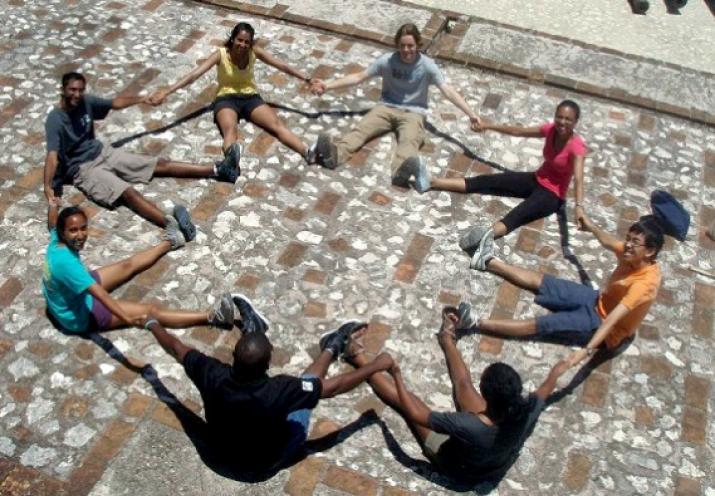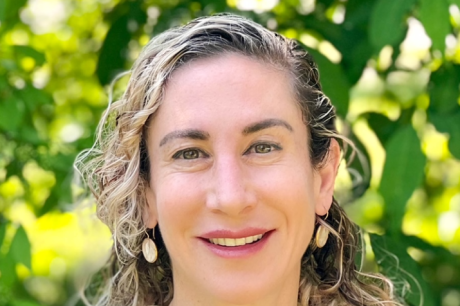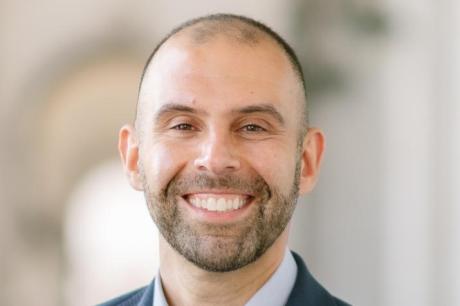
Photo by global health student Priscille Schettini
Published January 22, 2013, last updated on April 1, 2013 under Education News
Global health is one of five themes of a new $50 million education initiative that engages students and faculty in collaborations across traditional academic boundaries to tackle complex social issues.
The initiative, Bass Connections, named for the donors Anne and Robert Bass of Fort Worth Texas, will provide a range of new educational pathways for Duke’s undergraduate, graduate and professional students, bringing them together to work on project teams with faculty to address issues that require the expertise of educators and researchers with diverse backgrounds. The initiative will focus initially on global health and four other broad areas: brain and society; education and human development; energy; and information, society and culture.
The initiative’s global health theme will start with two yearlong pilot projects under the direction of DGHI faculty members William Pan and Kathryn Whetten and will explore the human health impacts of gold mining in Peru and interpersonal violence and educational interventions in the Durham Latino community, respectively. Through coursework and immersive fieldwork, students—- undergraduate through doctoral—- will work creatively and collectively to address health disparities and find solutions that have real-life implications for these communities. One goal of these pilot projects is for DGHI to develop guidelines and best practices that will inform implementation of future Bass Connections activities.
“Bass Connections provides a wonderful opportunity to strengthen global health education programs at Duke and engage a wider set of students who may not yet be formally involved in a global health program,” said Randall Kramer, deputy director of the Duke Global Health Institute. “The team project approach will provide students with excellent new experiential learning opportunities both inside and outside of the classroom.”
The global environmental health project team working in Peru will include undergraduates from Trinity, graduate students from Nicholas and Pratt, and a postdoctoral associate from DGHI. Students and faculty will spend the summer in Peru collecting data on health indicators and environmental toxins and will then use that data to conduct a community assessment on health and environmental risks. They will prepare a report of their findings in English and Spanish.
The Durham-based health disparities project team will include a multidisciplinary team of undergraduate, graduate and professional students in medicine, law psychology and public policy. The project will provide students with the opportunity to learn about health disparities in North Carolina, while working with NGO and religious leaders and mental health professionals. The students will participate in a community forum, implement a survey, and develop an education intervention that will be shared with Latino community agencies and religious organizations.
Bass Connections will build on existing innovations within Duke’s curriculum to help students gain experience and develop expertise in their major from the moment they arrive on campus. Duke has long promoted interdisciplinary scholarship in its departments and schools and, more recently, through seven university institutes that cut across academic boundaries.
Anne and Robert Bass of Fort Worth, Texas, have donated $50 million for the Bass Connections initiative, half of which will be used in a matching program to encourage gifts from others. Anne Bass has been a Duke trustee since 2003 and is one of three co-chairs of Duke Forward, the university’s $3.25 billion fundraising campaign.
“We are grateful to the Bass family for embracing Duke’s vision of education as something that extends beyond what happens in a traditional classroom,” said Duke President Richard H. Brodhead. “Because Bass Connections will involve students and faculty at all 10 Duke schools, it will have a transformative impact on our entire campus. Students will pursue new educational pathways and join with faculty on interdisciplinary teams to apply their knowledge and skills to urgent social challenges. Simultaneously, Bass Connections will highlight the importance of disciplinary approaches for enabling meaningful collaboration.”
For more information, visit the Bass Connections website.
Bass Connections provides a wonderful opportunity to strengthen global health education programs at Duke and engage a wider set of students who may not yet be formally involved in a global health program.


